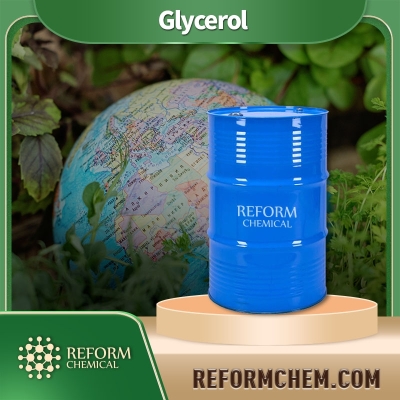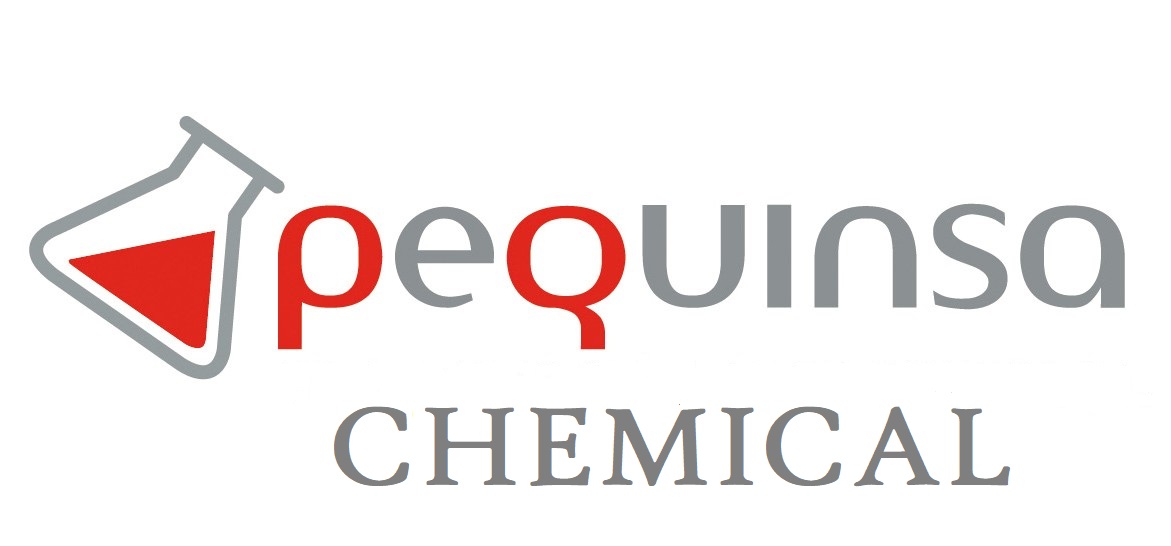-
Categories
-
Pharmaceutical Intermediates
-
Active Pharmaceutical Ingredients
-
Food Additives
- Industrial Coatings
- Agrochemicals
- Dyes and Pigments
- Surfactant
- Flavors and Fragrances
- Chemical Reagents
- Catalyst and Auxiliary
- Natural Products
- Inorganic Chemistry
-
Organic Chemistry
-
Biochemical Engineering
- Analytical Chemistry
-
Cosmetic Ingredient
- Water Treatment Chemical
-
Pharmaceutical Intermediates
Promotion
ECHEMI Mall
Wholesale
Weekly Price
Exhibition
News
-
Trade Service
In recent years, with the increasing use of biologics, the prognosis of patients with inflammatory bowel disease (IBD) has been significantly improved, and their treatment goals have gradually changed from clinical remission to mucosal healing and histological remission [1].
However, it also brings many new challenges to the treatment of IBD, such as how to choose the appropriate treatment plan for different patients, achieve mucosal healing as soon as possible, and do a good job in long-term management of the disease
.
Real-world studies (RWS) can truly reflect the efficacy and safety of therapeutic drugs in actual clinical applications, provide a reasonable basis for clinical use, and play an important role
in clinical decision-making.
We specially invited Professor Zhi Min from the Sixth Affiliated Hospital of Sun Yat-sen University to be interviewed to share his clinical diagnosis and treatment experience, RWS development, and future research directions, in order to provide guidance
for clinical practice.
Q1The emergence of biologics has opened the way for precision treatment of IBD, how should different types of patients choose the appropriate treatment plan, and how to scientifically evaluate to adjust the treatment plan?
The high heterogeneity of IBD, the complexity and diversity of clinical manifestations of patients, and the different responses to drugs in different patients suggest that patients with IBD should be treated individually [2].
Clinically, the optimal treatment plan should be selected after fully weighing the risks and benefits according to the patient's age of onset, course of disease, clinical symptoms, scope of lesions, severity of the disease, as well as whether there are comorbidities such as fistula, extraintestinal manifestations, infection, and tumors, and combined with the patient's drug history and willingness to take medication[3
].
In addition, the choice of medication at different stages of IBD is different, so it is necessary to choose the appropriate treatment plan
according to the stage of the disease in clinical work.
With the deepening of clinical understanding of standard treatment, from the relief of clinical symptoms in the past, to the current endoscopic mucosal healing, and even deep healing, such as histology and imaging healing
.
In addition, the concept of IBD treatment continues to be deepened, and if patients achieve deep remission early, they can reduce the risk of complications in the later stage, such as cancerous and intestinal stenosis in ulcerative colitis (UC), fistula and obstruction in Crohn's disease (CD), etc.
, and maximize the quality of life of
patients.
Q2How to view and understand the goal of IBD treatment from clinical symptom relief to mucosal healing, or even deep mucosal remission? How well do existing treatment options perform in achieving mucosal healing?
Clinical findings have found that even IBD patients who have achieved clinical remission still have varying degrees of mucosal damage, and unhealed mucosa will lead to subsequent intestinal stenosis, fistula, abscess and other adverse prognosis [4].
Early or rapid achievement of deep remission, such as mucosal healing, histology, and imaging healing, can effectively reduce the occurrence of complications of IBD, improve patient outcomes, and improve patients' quality of life [5].
Early active treatment with biological agents is the key to achieving mucosal healing, but the characteristics of different biological agents are different, among which the anti-integratin vedelizumab (VDZ) can accurately target the intestine, effectively promote endoscopic mucosal healing, and even histological and imaging healing, and has high safety, which is a good choice
for some IBD patients.
Q3: You recently published an RWS confirming the efficacy and safety
of vedelizumab in the treatment of IBD patients in China.
What prompted you to conduct this study? What are the highlights of the study in terms of study design?
As a clinician, you should not only do a good job in the treatment of diseases, but also summarize the treatment experience in the work and share
it with your peers.
Our study found that VDZ can effectively induce and maintain IBD remission and promote mucosal healing [6], and the original intention of publishing this article is to provide the experience of our center for the treatment of IBD, and also hope that experts across the country can explore their own clinical experience based on the results of our center, so as to benefit more patients
.
The biggest highlight of the study was the evaluation of the efficacy of VDZ in Chinese UC and CD patients from the perspective of mucosal healing, including clinical response rate, clinical response rate, endoscopic response rate and response rate, through a variety of clinical indicators (such as Crohn's disease activity index score (CDAI), Crohn's disease simplified endoscopic score (SES-CD), modified Mayo score, Mayo endoscopic score, C-reactive protein, erythrocyte sedimentation rate
.
In addition, the data of this study is complete and highly reliable, and it is the first real-world data reported on VDZ in China [6].
Q4What are the characteristics of RWS compared to randomized controlled studies? In the context of this RWS study, what further work is needed?
Randomized controlled trials (RCTs) and RWS are currently the two main research methods
in evidence-based medicine.
Among them, RCTs usually have a rigorous design, and effectively reduce the influence of various confounding factors through random, control and other control methods, so as to draw reliable conclusions
.
RWS design is based on the real situation of clinical practice, which can faithfully reflect the efficacy of therapeutic drugs in actual clinical applications, provide an objective basis for clinical use, and truly help more patients
.
Our research shows that short-term application of VDZ can effectively promote mucosal healing in IBD patients, and in the future, we may pay more attention to the optimization of VDZ, such as when to optimize, how to optimize, whether it needs to be combined with other drugs, etc.
, so as to explore how to optimize treatment to better promote mucosal healing
.
Duration of treatment and regimen optimization: VDZ maintenance therapy is usually held every eight weeks [7], but depending on the metabolic rate, level of intestinal inflammation, and comorbid symptoms, some patients may require optimal therapy or other pharmacological treatments
.
Long-term safety of VDZ: Studies have shown that VDZ is at the top of the biologics safety pyramid, but the types and incidence of infections in patients of different countries, regions and ages are different, and patients of different ages have different comorbidities, such as older patients often combined with cardiovascular and cerebrovascular diseases, combined with different tumor types, etc.
, therefore, it is necessary to stratify patients to explore the safety of
VDZ in different patients.
Long-term efficacy of VDZ: Although long-term studies have shown that VDZ has good long-term efficacy, low immunogenicity, high safety, and can be used for a long time [7-8], there is still a lack of long-term efficacy and safety data
on VDZ in Chinese IBD patients.
Therefore, I hope that in the future, we can carry out 5 or 10 years of research, set different research endpoints, discuss the long-term efficacy and treatment optimization of VDZ, further clarify the applicable population of VDZ, optimize the treatment plan of VDZ, and benefit more patients
.
Q5How should clinicians do a good job in the long-term management of UC patients? Please talk about the individualized drug use
experience of VDZ in UC patients in the context of clinical practice.
UC is a chronic lifelong disease that usually requires long-term treatment
.
In this process, the patient's treatment compliance should be strengthened first, so that the patient can realize that timely medication can effectively control the disease, if the current treatment drug is effective, it should adhere to the medication, and must not stop the drug by itself, otherwise it is easy to lead to relapse
.
Second, regular active follow-up should be performed, and some patients may have signs of recurrence endoscopically even if they have no clinical symptoms for 1 to 2 years, so endoscopy should be done regularly and imaging evaluation should be performed to maintain mucosal healing [9].
Third, during the long-term follow-up, if signs of disease recurrence are found, the treatment plan should be optimized or replaced in time to nip the bud of recurrence in the cradle, so that patients can benefit more
.
VDZ can effectively maintain long-term remission in UC patients, and stratified management and individualized treatment should be adopted according to the severity of the disease:
Summary
How to achieve the standard treatment, individualized treatment and long-term management of IBD is a new challenge faced by clinicians, Professor Zhi Min shared his insights on the above issues, providing valuable experience
for the clinical diagnosis and treatment of IBD.
In the treatment of IBD, early initiation of biologic therapy is the key to achieving mucosal healing, and the patient's disease characteristics should be combined with the drug characteristics when selecting the treatment plan, fully weighing the risks and risks, and formulating an individualized treatment plan
for the patient.







